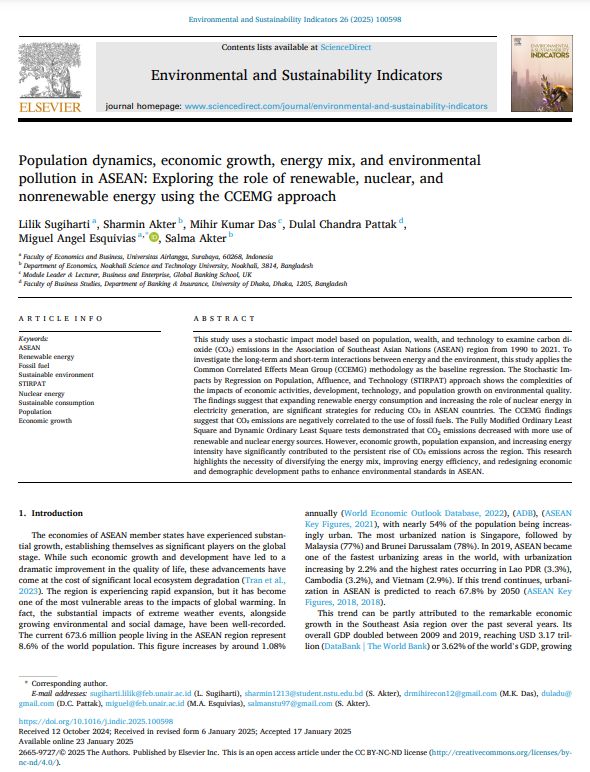
Keyword(s)
Author(s)
Lilik Sugiharti, Sharmin Akter, Mihir Kumar Das, Dulal Chandra Pattak, Miguel Angel Esquivias, Salma Akter
Country(ies)
Publisher
Published Date
Access
DOI
This study explores the links between environmental innovation, growth, quality, and renewable energy (RE) in ASEAN economies. It uses sophisticated econometric methods including Panel unit root tests, Westerlund cointegration, Augmented Mean Group and Common Correlated Effects Mean Group estimation, and Dumitrescu-Hurlin causality tests to understand the short run & long-term dynamics of these relationships. The study attempts to evaluate how economic growth and financial development affect environmental quality (EQ) as well as how innovation and RE can help to slow down environmental deterioration. While RE significantly reduces emissions of carbon dioxide (CO2) and nitrous oxide (N2O), the results show that environmental innovations like patents have a delayed but beneficial long-term influence on reducing emissions. Financial development also helps to reduce emissions over the long run despite economic growth and the burning of fossil fuels increasing emissions. The Dumitrescu-Hurlin causality test shows that these factors reinforce each other, requiring coordinated policy actions. The report suggests ASEAN nations prioritize RE and environmental innovation for long-term emission reductions. For sustainable development, financial markets must be expanded to accommodate green financing programs such as green bonds. Decoupling economic growth from the use of fossil fuels is also necessary to ensure a sustainable future.